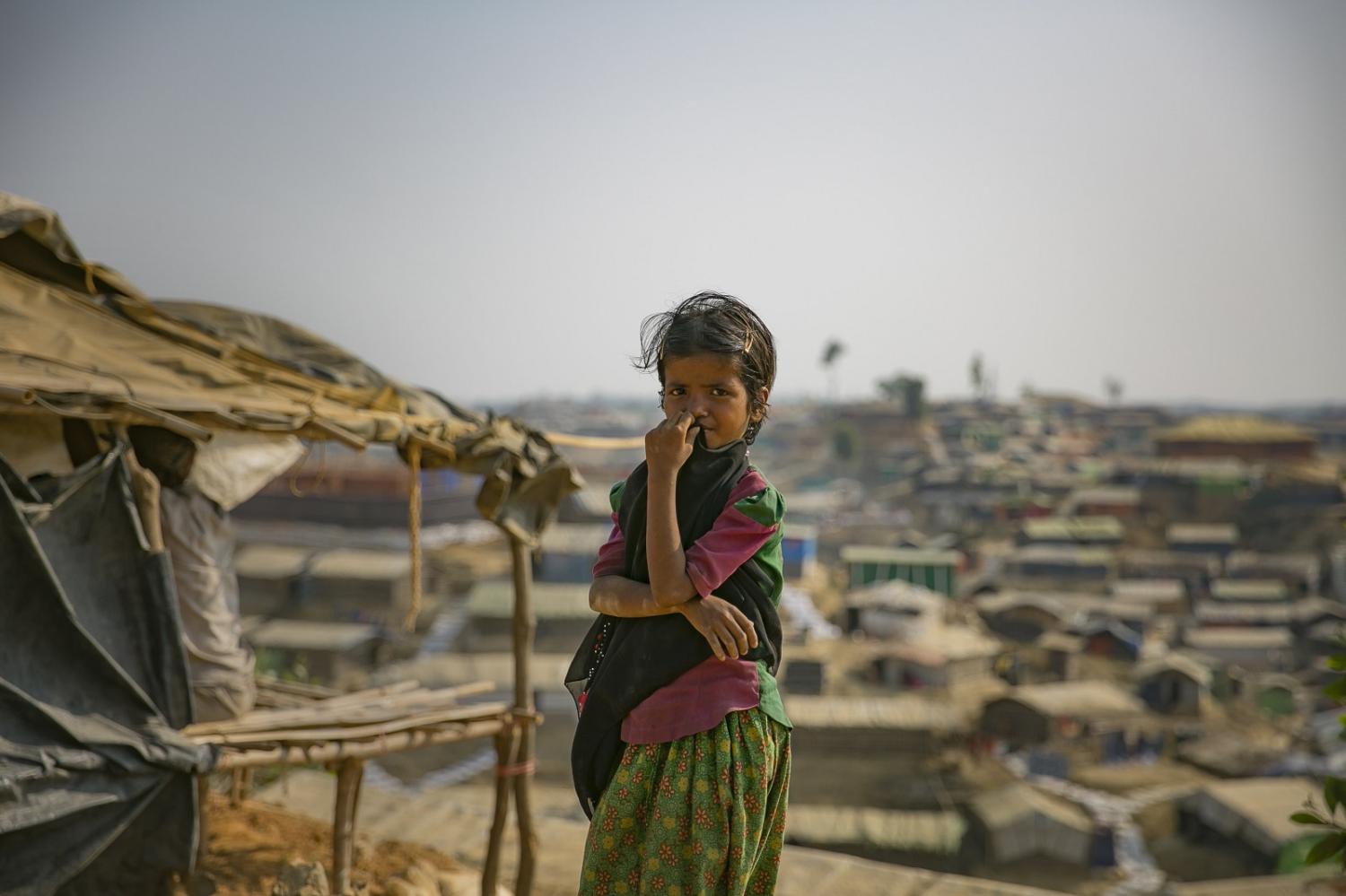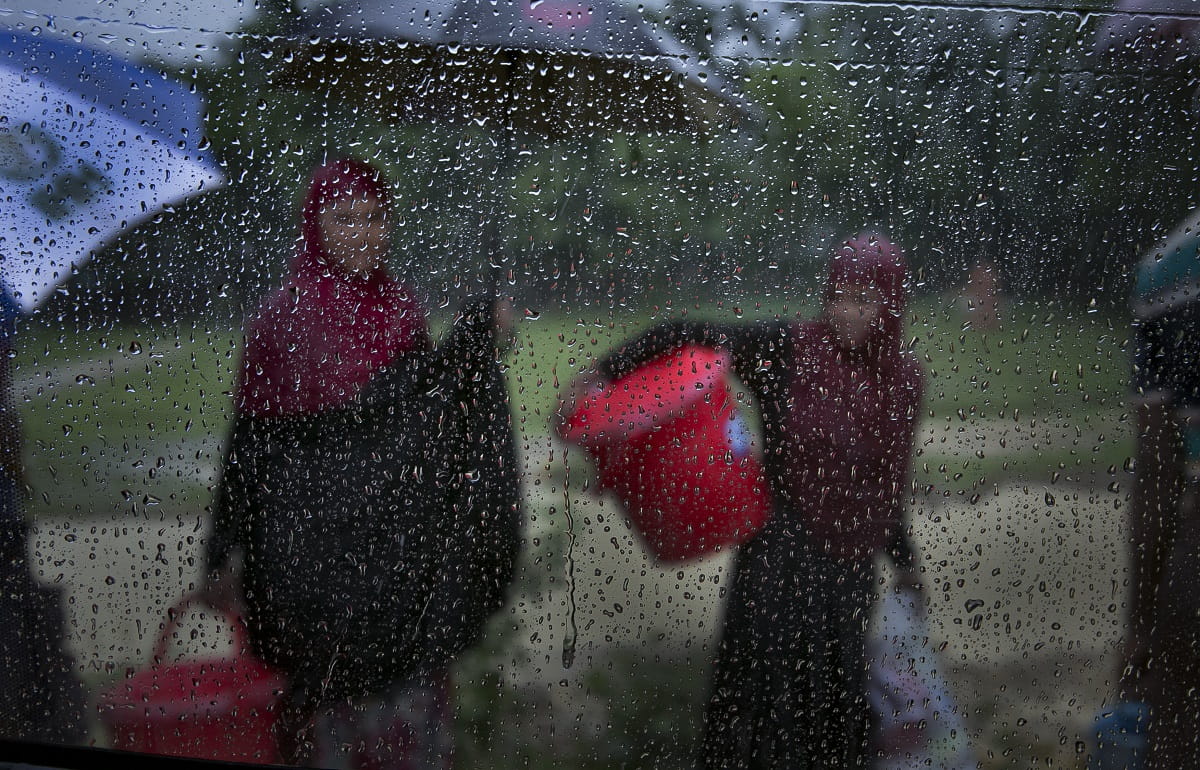Honouring a pledge to be tough on borders without being “weak
on humanity” will bolster Canberra’s aim of regional stability.

The Rohingya – the world’s largest stateless population – have faced decades of systematic persecution, including mass displacement following targeted violence in Rakhine State in 2017, and a deterioration of conditions in Myanmar following the 2021 military takeover. More than 1.6 million Rohingya are displaced throughout Asia, including close to one million in Bangladesh, 102,000 in Malaysia, 22,000 in India, and smaller groups in Indonesia and Thailand.
Rohingya in camps in Bangladesh’s Cox’s Bazar – the world’s largest refugee settlement – face precarious security conditions, including escalating armed violence. Without meaningful access to livelihood opportunities, Rohingya are reliant on humanitarian assistance to survive. Of the US$918.1 million required to support the 2023 humanitarian response, only 40 per cent has been funded. Severe funding shortfalls have led the World Food Programme to cut food rations for Rohingya in Cox’s Bazar to just US$8 per month, in a context where 12 per cent of children are already acutely malnourished. Recent research led by Rohingya youth highlighted severe restrictions on freedom of movement, reporting that many felt the restrictions on their basic rights in the camps were “similar [to] or worse than the systemic human rights violations experienced in Myanmar”.
Adding to these dire conditions is the fact that Cox’s Bazar is one of the most disaster-prone regions in Bangladesh, one of the world’s most climate-vulnerable countries. The densely populated camps lack adequate shelter and are located in “a hot zone for climate threats”. Thousands of refugees lost their homes to Cyclone Mocha in May 2023, and in October 2023, Cyclone Hamoon caused the evacuation of nearly 275,000 people in the region.
These cascading threats have heightened the potential for exploitation, including human trafficking from the camps. It is no surprise then, that Rohingya are increasingly attempting onward movement from Bangladesh to other parts of the region, via dangerous land and sea journeys. Almost 6,000 Rohingya have embarked on sea journeys since January 2022, with more than 570 reported dead or missing. Those who reach neighbouring countries are not afforded formal protection, legal status or access to basic rights, such as the right to work. Rohingya therefore remain vulnerable to further exploitation, arbitrary detention, and possible refoulement.

The UN Security Council has underscored the need to address the root causes of the crisis in Rakhine State and create the conditions necessary for the voluntary, safe, dignified and sustainable return of Rohingya refugees. Voluntary return has been the preferred outcome for host countries in the region. However, the current reality is that ongoing political instability in Myanmar makes the safe and sustainable return of Rohingya untenable in the short or medium term.
It is time that host countries and other regional actors, including Australia, recognise this reality and start working towards genuine solutions for Rohingya.
There are several entry points through which Australia can and should play a leading role in driving meaningful regional responses. These are explored in a recent discussion paper released under the Protecting Rohingya Refugees in Asia project, and are highlighted below.
In February 2023, the Bali Process on People Smuggling, Trafficking in Persons and Related Transnational Crime, co-chaired by the foreign ministers of Indonesia and Australia, reactivated its Consultation Mechanism in response to increased irregular maritime movements in the Andaman Sea. As co-chair, Australia is in a position to use the reactivation to strengthen regional emergency preparedness and response coordination under the Task Force on Planning and Preparedness, including in relation to maritime search and rescue and protection measures, such as access to basic rights and alternatives to detention in host countries.
In October 2023, a High-Level Meeting on Rohingya Refugees was held in Bangkok, aiming to “refocus efforts” in “the spirit of greater responsibility-sharing”. Ahead of the December 2023 Global Refugee Forum, UNHCR invited commitments to “A Multi-Stakeholder Pledge for Rohingya Refugees”. The pledge aims to scale up opportunities for Rohingya resilience and self-reliance, sustainable return, protection along the Southeast Asia onward movement route, and expanded access to third country resettlement and complementary pathways (education, labour mobility, family reunification and community sponsorship).
Australia should embrace these opportunities – as well as its involvement in the recently launched Resettlement Diplomacy Network – to make concrete commitments to increase funding and technical support for protection of Rohingya in Bangladesh and the wider region, as well as expanding Rohingya access to Australian pathways such as the Community Refugee Integration and Settlement Pilot (CRISP) and the Skilled Refugee Labour Agreement Pilot program. These pathways should be scaled up and made permanent and additional to Australia’s humanitarian intake. Australia should commit to Global Refugee Forum pledges both unilaterally as a key regional resettlement country, and in collaboration with Bali Process co-chair Indonesia on behalf of Bali Process members.
In June 2024, Australia – represented by the Refugee Council of Australia and the Department of Home Affairs – will chair the global Consultations on Resettlement and Complementary Pathways in Geneva. This multilateral forum presents another important opportunity to demonstrate leadership on solutions for refugees in the Asia Pacific region, prioritising displaced Rohingya, who represent one of the largest and most protracted refugee situations in the region.
The Albanese government has pledged to be tough on borders without being “weak on humanity”. Leading on solutions for Rohingya displacement would not only be a principled expression of humanity but would also demonstrate a genuine commitment to regional stability and responsibility-sharing – at a time when this is gravely needed.
As other crises unfold around the world, it is important that the Rohingya are not forgotten.
